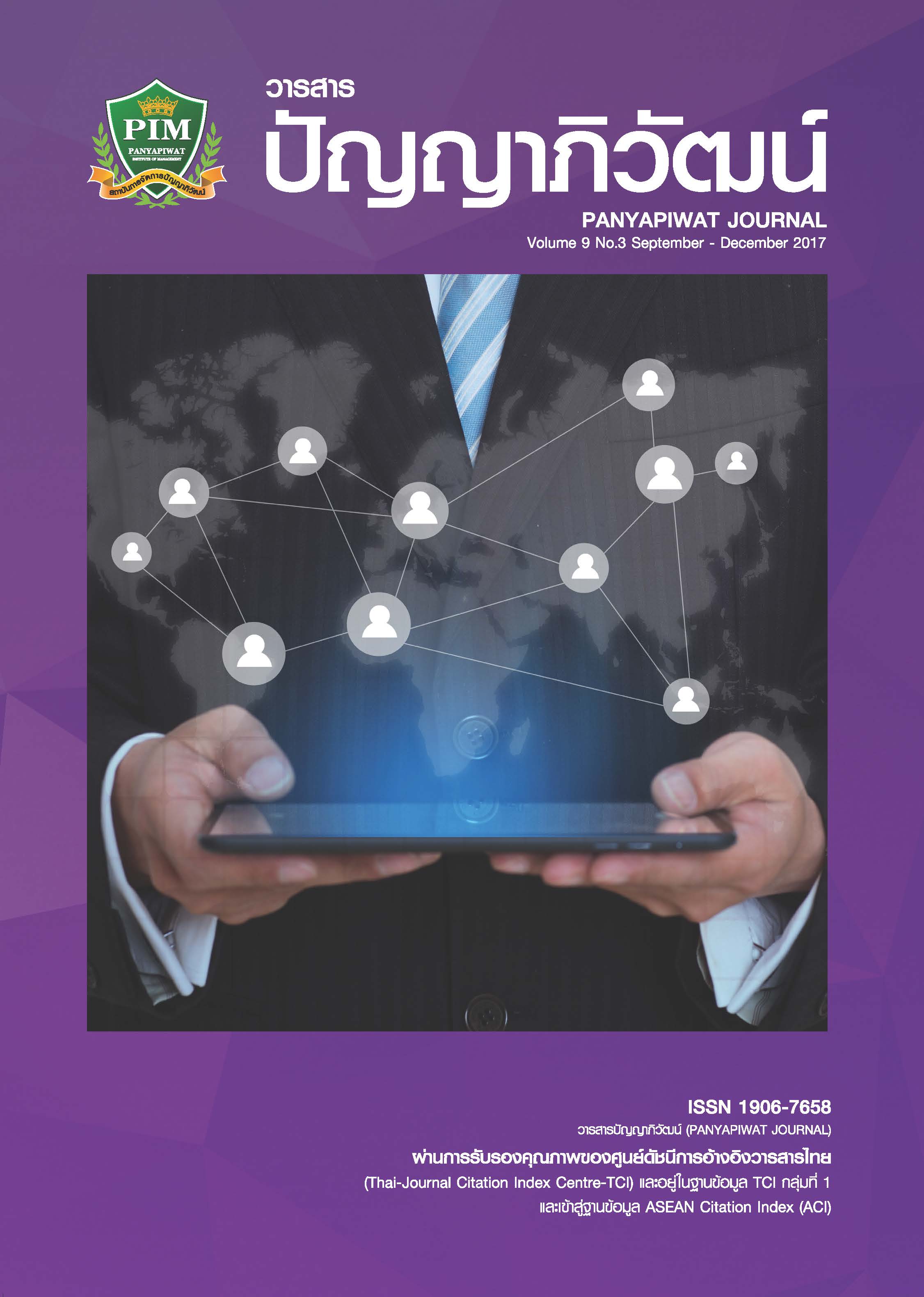แนวคิดการกำหนดประเด็นปัญหาวิจัยทางรัฐประศาสนศาสตร์
Main Article Content
บทคัดย่อ
ขั้นตอนสำคัญในการกำหนดประเด็นปัญหาที่นำไปสู่การวิจัยทางรัฐประศาสนศาสตร์ ที่เป็นไปเพื่อประโยชน์สุขและความอยู่ดีกินดีของประชาชน โดยลำดับแรก ผู้วิจัยต้องมีความเข้าใจต่อกระบวนทัศน์การวิจัย และลำดับต่อมาคือ พิจารณาแนวทางที่จะนำไปสู่การวิจัย ประกอบด้วย 1) จะเลือกทำวิจัยอะไร 2) จะทำการวิจัยเพื่อเหตุใด และ 3) จะใช้วิธีการใดในการวิจัย ซึ่งการกำหนดประเด็นปัญหาที่ดีจะนำไปสู่ผลการวิจัยที่มีคุณค่า เป็นประโยชน์ และนำไปใช้ในการแก้ไขปัญหาและพัฒนาประเทศได้อย่างชัดเจน
An important step for problems determination in public administration for the utilities and welfare of the population. The first of all the researchers should understand the research paradigm, next is the consideration ways to the ways of research, there are 1) what to selecting research issues, 2) why to do research, and 3) how to do research methodology. If the defining problems is well, it brings to the result research that is valuable. And uses to the problem solving, and countries development clearly.
Article Details
“ข้าพเจ้าและผู้เขียนร่วม (ถ้ามี) ขอรับรองว่า บทความที่เสนอมานี้ยังไม่เคยได้รับการตีพิมพ์และไม่ได้อยู่ระหว่างกระบวนการพิจารณาลงตีพิมพ์ในวารสารหรือแหล่งเผยแพร่อื่นใด ข้าพเจ้าและผู้เขียนร่วมยอมรับหลักเกณฑ์การพิจารณาต้นฉบับ ทั้งยินยอมให้กองบรรณาธิการมีสิทธิ์พิจารณาและตรวจแก้ต้นฉบับได้ตามที่เห็นสมควร พร้อมนี้ขอมอบลิขสิทธิ์บทความที่ได้รับการตีพิมพ์ให้แก่สถาบันการจัดการปัญญาภิวัฒน์หากมีการฟ้องร้องเรื่องการละเมิดลิขสิทธิ์เกี่ยวกับภาพ กราฟ ข้อความส่วนใดส่วนหนึ่งและ/หรือข้อคิดเห็นที่ปรากฏในบทความข้าพเจ้าและผู้เขียนร่วมยินยอมรับผิดชอบแต่เพียงฝ่ายเดียว”
เอกสารอ้างอิง
Boaneaw, C. (2007). Participation in The Research Process to Locals. Chiangmai: Office Research Fund (TRF). [in Thai]
Chandarasorn, W. (2013). Future Research Direction of Public Administration. Bangkok: Chinawatra University. [in Thai]
Fongsri, P. (2009). The Errors Solution in The Research. Bangkok: Darnsutha Press. [in Thai]
Kaewsuttha, N. (2013). Criticize the book. Practice Research: Planning and Design. Journal of Dentistry, 6(1), 87-94. [in Thai]
Kenaphoom, S. (2014). A creation of A Research Conceptual Framework for Public Administration by Knowledge Management Methodology. Journal of Faculty of Humanities and Social Sciences, 5(2), 13-31. [in Thai]
Natsupa, N. (2005). Guidelines for Social Research of Thailand. Bangkok: SangSan Publishing. [in Thai]
O’Leary, R., Slyke, D. M. V. & Kim, S. (2010). The Future of Public Administration around the World: The Minnowbrook Perspective. Washington: Georgetown University Press.
Photisita, C. (2011). The Art and Science of qualitative research (5th ed.). Bangkok: Amarin Printing and Publishing. [in Thai]
Pratuangboriboon, N. (2014). An Annual Incentive Specification of A Local Administrative Organization in Chiangmai Province. Dissertation of Doctor of Philosophy, Maejo University. [in Thai]
Prayoon, P. (2005). Systems Thinking. Bangkok: Chulalongkorn University Press. [in Thai]
Smith, M, E., Thorpe, R. & Lowe, A. (1991). Management Research: An Introduction. London: Sage Publication.
Suwanwela, C. (2002). World Research and Thailand research System. Bangkok: National Health Foundation. [in Thai]
The National Research Council of Thailand. (2009). The Reform of Thailand Research System. Retrieved August 1, 2016, from https://www1.nrct.go.th/downloads/ps/thailand_research_ reform.pdf[in Thai]
The National Research Council of Thailand. (2013). Manual for evaluating research proposals of the government’s proposed budget for fiscal year 2015. By the Cabinet resolutions. Samut Prakan: Park Art & Updates. [in Thai]
Viriyasuebphong, P. (2016). How To Write an Article for Socially Engaged Research. Panyapiwat Journal, 8(1), 263-274. [in Thai]
Vorakitkasemsakul, S. (2011). Research methodology in behavioral sciences and social sciences.Faculty of Education, Udon Thani Rajabhat University. [in Thai]


